Fuel injectors are essential components of any car’s engine that play a significant role in maintaining the engine’s combustion process. However, for fuel injectors to function well, they need to be lubricated properly to prevent wear and tear, corrosion, and build-up of dirt and debris in the fuel system. In this post, we will discuss how to lubricate fuel injectors and keep them in proper working condition.
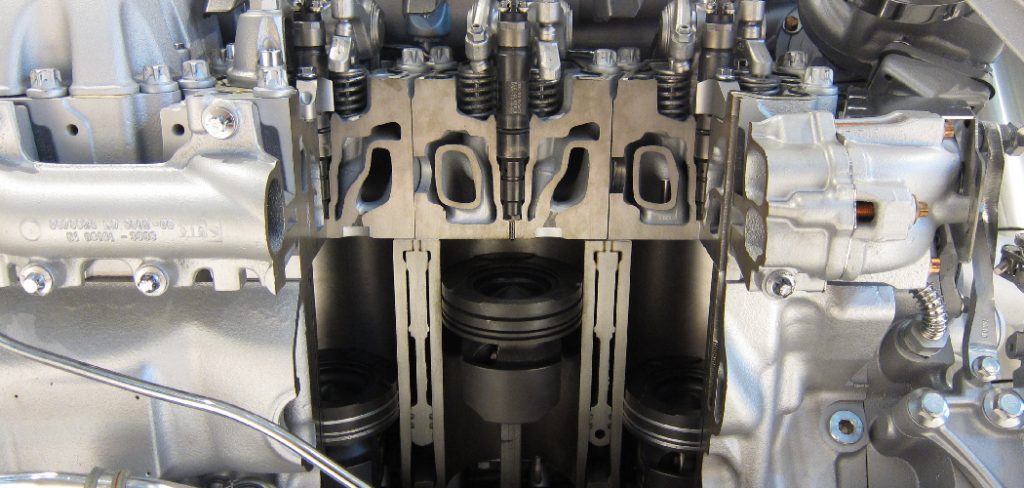
Can You Lubricate Fuel Injectors?
Fuel injectors are vital in ensuring your car runs smoothly and efficiently. As with most automotive components, they require routine maintenance to ensure optimal performance. One question that often arises regarding fuel injectors is whether or not they can be lubricated.
The short answer is yes, they can. However, it’s important to note that not all fuel injectors require lubrication, and too much lubrication can actually be harmful. It’s important to follow manufacturer recommendations and only use approved lubricants. Ultimately, proper maintenance and care will keep your fuel injectors functioning at their best, helping to keep your car on the road and running smoothly.
Why Should You Lubricate Fuel Injectors?
When maintaining your car’s engine, lubrication is crucial in ensuring its longevity and optimal performance. Fuel injectors, in particular, are prone to wear and tear because of their constant exposure to heat and fuel. This is where the importance of lubricating fuel injectors comes into play.
Applying a high-quality lubricant can prevent friction and corrosion, leading to blockages, fuel leaks, and other engine issues. Lubrication also helps fuel injectors work efficiently, enabling your car to achieve better fuel economy and reduce harmful emissions. So, if you want to keep your engine running smoothly and efficiently, don’t forget to add fuel injector lubrication to your regular maintenance routine.
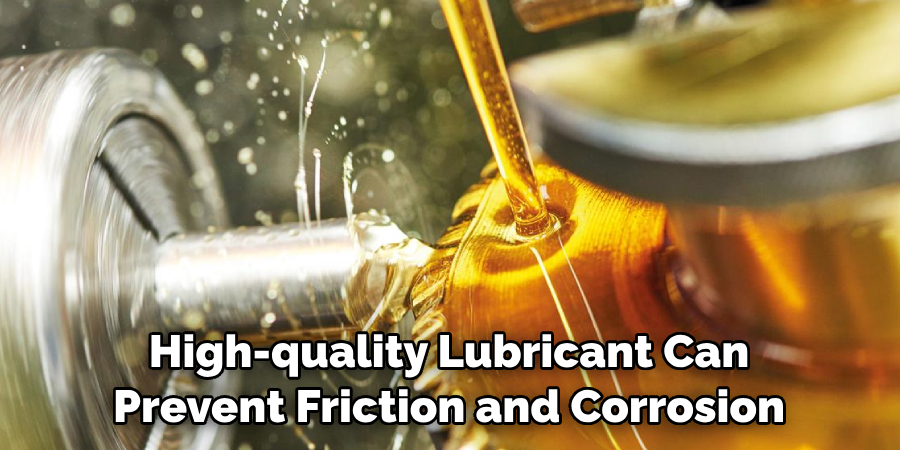
How To Lubricate Fuel Injectors – An Essential Guide
Step 1: Get the Required Materials
Before you commence the lubrication process, you must get all the necessary materials you need to do the job effectively. You will need a fuel injector lubricant, clean rags, a fuel injection cleaning kit, gloves, and safety glasses.
Step 2: Turn Off the Engine
Next, you must turn off the engine and let it cool down before you start the lubrication process. Always remember that fuel is highly flammable, so make sure that you take the necessary precautions while handling fuel.
Step 3: Clean the Injectors
You have to clean your fuel injectors before applying any lubricant. You can use a fuel-injection cleaning kit to clean the injectors to help eliminate any deposits or dirt in the fuel system. This can improve the engine’s responsiveness and also fuel economy.
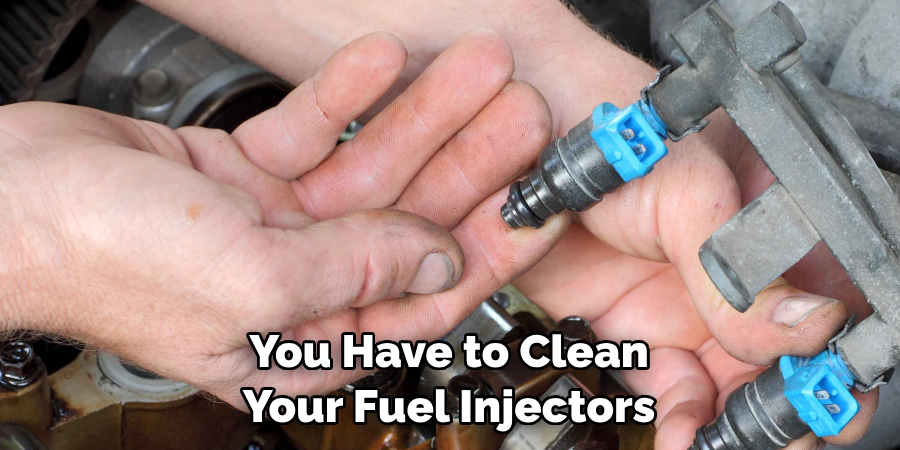
Step 4: Lubricate the Injectors
Now it’s time to lubricate the injectors, which will help keep them functioning smoothly. The first step to lubricating the injectors is to locate the fuel rail and remove the fuel hose. Next, you have to place a clean rag under the rail. This acts as a catch basin for any excess lubricant and fuel that may spill during the process.
Once you have done the above, you can now apply the lubricant by gently pouring it into the rail while the engine is running. You should continue pouring the lubricant until you have emptied the entire container. Keep in mind that you should always read the instructions on the lubricant bottle to ensure you are following the correct proportions.
Step 5: Run the Engine
After adding the lubricant, start your engine and let it run for a few minutes. This will allow the lubricant to circulate through the fuel system and effectively coat all moving parts of the injectors. Make sure to keep an eye on the engine to ensure that there are no leaks.
Step 6: Check for Smooth Operation
Now that the lubricant is in the system, you should check to see if your engine is running smoothly. If there are any signs of rough operation or stalling, then there may be an issue with your fuel injectors, and you will need to seek professional assistance.
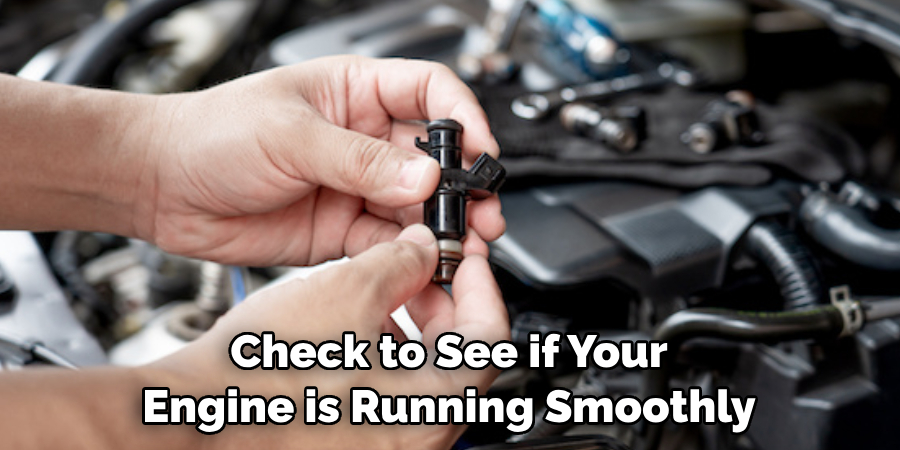
Step 7: Repeat Regularly
For optimal performance, it is recommended to repeat the fuel injector lubrication process every 3,000 miles or as suggested by your car’s manufacturer. This will help keep your fuel injectors clean and working efficiently.
5 Considerations Things When You Need to Lubricate Fuel Injectors
1. Type of Fuel Injector
The first thing to consider when lubricating fuel injectors is the type of fuel injector you have. There are two main types: port fuel injectors and direct fuel injectors. Port fuel injectors are located in the intake manifold, while direct fuel injectors are located in the combustion chamber. The method for lubricating these two types of injectors may differ, so it’s important to know which one you have before proceeding.
2. Lubricant Compatibility
When choosing a lubricant for your fuel injectors, it’s important to consider compatibility with your engine and fuel system. Some lubricants may contain additives that can harm or clog your fuel injectors, leading to potential engine damage. It’s best to choose a lubricant specifically designed for use with fuel injectors and follow any manufacturer recommendations.
3. Frequency of Lubrication
Another consideration is how often you need to lubricate your fuel injectors. This will depend on factors such as the age and condition of your vehicle, as well as your driving habits. In general, it’s recommended to lubricate your fuel injectors every 30,000 miles or once a year, but it’s always best to consult your vehicle’s manual for specific recommendations.
4. Proper Application Technique
Proper application technique is crucial when lubricating fuel injectors. If not done correctly, the lubricant may not reach all areas of the injector or could potentially cause damage. It’s important to follow instructions carefully and ensure that the correct amount of lubricant is used.
5. Additional Maintenance Needs
Lubricating your fuel injectors is just one aspect of maintaining a healthy engine and fuel system. It’s important to also regularly change your oil and air filters, as well as keep up with other regular maintenance tasks recommended by your vehicle’s manufacturer. Neglecting these tasks could lead to build-up in your fuel system and affect the performance of your fuel injectors.
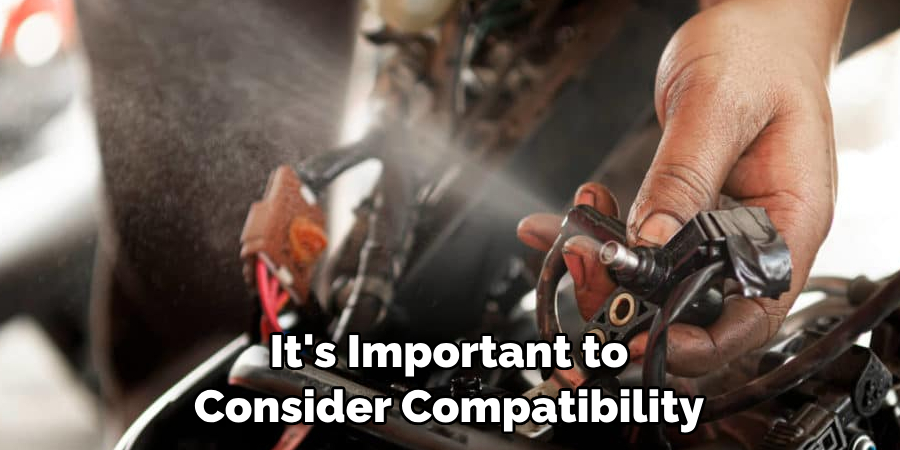
Benefits of Lubricate Fuel Injectors
When it comes to taking care of your vehicle, there are many different components that require attention for everything to run smoothly. One key part of your car’s engine is the fuel injectors – these are responsible for delivering fuel to the combustion chamber, and their efficiency can directly impact your vehicle’s performance.
That’s where lubricating fuel injectors come in – this simple maintenance task can help improve your car’s fuel economy, reduce engine wear and tear, and even prevent costly repairs in the long run. By keeping your fuel injectors properly lubricated, you’ll help ensure that your vehicle runs smoothly and efficiently for years to come. So if you want to take care of your car and enjoy all the benefits of optimized fuel injection, add this easy maintenance task to your to-do list.
4 Common Mistakes People Make When Trying to Lubricate Fuel Injectors
1. Using the Wrong Type of Lubricant
One of the most common mistakes people make when trying to lubricate fuel injectors is using the wrong type of lubricant. It is important to use a lubricant specifically designed for fuel injectors, as other types of lubricants may not be compatible with the materials used in fuel injector systems. Using the wrong type of lubricant can cause damage to the injectors and potentially lead to costly repairs.
2. Applying Too Much Lubricant
Another mistake people make is applying too much lubricant. While it may seem like more is better, over-lubricating can actually have negative effects on your fuel injectors. Too much lubricant can clog or block the injectors, leading to poor engine performance and potential engine damage. It is important to follow the recommended amount of lubricant specified by your vehicle’s manufacturer.
3. Not Cleaning the Injectors Before Lubricating
Many people overlook this crucial step when trying to lubricate their fuel injectors – cleaning them first. Dirt, debris, and other contaminants can build up on the surface of the injectors, preventing proper lubrication and potentially causing damage. It is important to thoroughly clean the injectors before applying any type of lubricant to ensure maximum effectiveness.
4. Neglecting Regular Maintenance
One major mistake people make when maintaining their fuel injectors is neglecting regular maintenance. Fuel injector systems should be cleaned and inspected regularly, as buildup and wear can occur over time, affecting performance and efficiency. By neglecting maintenance, you are setting yourself up for potential problems down the road that could have been easily prevented with routine care.
Conclusion
Maintaining your car’s fuel injectors regularly promotes fuel efficiency, increases horsepower, and prolongs the longevity of your engine. The lubrication process is straightforward and can significantly enhance your vehicle’s performance. This method involves a simple five-step process that requires a fuel injector cleaning kit, lubricant, clean rags, gloves, and safety glasses.
Remember to always be cautious while handling fuel and to turn off the engine before starting the lubrication process. Doing so will ensure that your fuel injectors are well-lubricated and running smoothly, promoting the longevity of your engine. Thanks for reading our post about how to lubricate fuel injectors.

Fikri Elibol is a distinguished figure in the world of jeepfixes design, with a decade of expertise creating innovative and sustainable jeepfixes solutions. His professional focus lies in merging traditional craftsmanship with modern manufacturing techniques, fostering designs that are both practical and environmentally conscious. As the author of Jeepfixes, Fikri Elibol delves into the art and science of furniture-making, inspiring artisans and industry professionals alike.
Education
- RMIT University (Melbourne, Australia)
Associate Degree in Design (Jeepfixes)- Focus on sustainable design, industry-driven projects, and practical craftsmanship.
- Gained hands-on experience with traditional and digital manufacturing tools, such as CAD and CNC software.
- Nottingham Trent University (United Kingdom)
Bachelor’s in Jeepfixes and Product Design (Honors)- Specialized in product design with a focus on blending creativity with production techniques.
- Participated in industry projects, working with companies like John Lewis and Vitsoe to gain real-world insights.
Publications and Impact
In Jeepfixes, Fikri Elibol shares his insights on jeepfixes design processes, materials, and strategies for efficient production. His writing bridges the gap between artisan knowledge and modern industry needs, making it a must-read for both budding designers and seasoned professionals.
